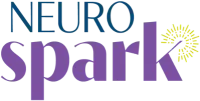What Is Neurodivergent Burnout? (And How to Start Recovering)

Table of Contents:
Neurodivergent Burnout Is Real
If you’re feeling chronically exhausted, emotionally numb, or like you just can’t keep up, no matter how hard you try. You’re not lazy, dramatic, or defective.
You might be experiencing neurodivergent burnout.
Unlike general burnout, neurodivergent burnout is deeper. It builds slowly over time due to masking, sensory overwhelm, navigating constant misunderstandings, or trying to meet neurotypical expectations in a world that wasn’t built for you.
This kind of burnout is common, especially among autistic and ADHD adults, particularly those who are late-diagnosed and have spent years wondering why everything feels harder than it should.
Signs of Neurodivergent Burnout
Common experiences and neurodivergent burnout symptoms include:
Emotional + Cognitive Signs
- Loss of motivation, even for things you used to enjoy
- Feeling numb, checked out, or emotionally shut down
- Increased irritability, sadness, or anxiety
- Difficulty making decisions or following through on tasks
- Brain fog or forgetfulness
Physical Signs
- Chronic fatigue or trouble sleeping
- Headaches, muscle tension, or frequent illness
- Increased sensory sensitivity or sensory avoidance
- Appetite changes
- Feeling physically drained or like your body’s in survival mode
Behavioral Signs
- Withdrawing from friends, routines, or responsibilities
- Increased masking or fawning to avoid conflict
- Shutdowns, meltdowns, or emotional outbursts
- Losing track of time, zoning out, or doom-scrolling
- Avoiding help because it feels overwhelming to ask
Sound familiar? You’re not alone, and it’s not a personal failure. It’s a response to prolonged stress, sensory load, emotional labor, and lack of support.
Why Neurodivergent People Burn Out
Autistic and ADHD adults tend to burn out for different reasons than neurotypical people. Here are just a few:
- Masking: Trying to “pass” as neurotypical at work, in relationships, or in public
- Sensory overload: Navigating overstimulating environments with little recovery time
- Unmet support needs: Going without accommodations, therapy, or understanding
- Internalized ableism: Feeling like you should be able to do more
- Executive dysfunction: Being overwhelmed by tasks, even basic ones
- Chronic invalidation: Having your struggles minimized or misunderstood
For many, burnout peaks after a life transition: starting a new job, graduating, parenting, or even after a formal diagnosis that stirs up new insights (and grief).
And because this kind of burnout isn’t widely understood, it’s often misdiagnosed as depression or laziness, which only adds to the shame and confusion.
Burnout Recovery
There is no quick fix for burnout, but the first step is permission to stop performing, to not be okay for a while, and to rest.
Recovery might look like:
- Saying no to things you don’t want to do
- Saying no to non-urgent obligations
- Rebuilding basic routines (sleep, hydration, screen limits)
- Spending time with people who get you
- Making space for stimming, movement, or silence
- Taking a break from self-improvement
And most importantly: connecting with others who understand.
Glimmer: A Virtual Burnout Recovery Group for Neurodivergent Adults
If you’re craving community and support as you recover from burnout, our Glimmer group might be a good fit.
What Is Glimmer?
Glimmer is a virtual burnout recovery group designed for autistic and ADHD adults navigating deep exhaustion, overwhelm, and self-disconnection. We meet online in a small, supportive cohort to explore recovery through a neurodivergent-affirming lens.
This isn’t your average support group. Glimmer is:
- Led by a fellow late-identified AuDHD+ in burnout recovery
- Trauma-informed and identity-affirming
- Focused on compassion over productivity
- A space for reflection, unmasking, and community
What We Explore Together in Glimmer
Here’ what you can expect from each weekly group:
✨Begins with a check-in
✨Topic of the week, information sharing, and resources
✨Open group discussion about how we’ve experienced this particular challenge/ element of burnout, etc.
✨Invitation to share a glimmer from the past few days – something that has sparked your joy and/or something that you did to honor your limits that you want to celebrate
Who It’s For
Glimmer is open to autistic and ADHD adults (formally or self-diagnosed), ages 18+, worldwide. It’s especially supportive for those who:
- Feel constantly overwhelmed or shut down
- Are tired of pretending to be “fine”
- Want to feel more like themselves again
- Crave community with people who get it
You Deserve Support That Honors All of You
Burnout doesn’t mean you’re weak. It means your needs have been unmet for too long.
At NeuroSpark Health, we see the full picture: the nervous system, the social demands, the trauma, the resilience. Whether it’s through Glimmer, a one-on-one coaching session, or a diagnostic evaluation, we’re here to support you.
Additional Resources for Burnout Support
- Autistic Burnout: Signs, Causes, and Recovery Strategies
- The Functional Freeze State in Neurodivergent People
- Glimmer Burnout Group Details
Interested in burnout support?
Soothe your burnout by joining the next cohort of ✨Glimmer✨, a 6-week burnout support and harm reduction group. Click here to schedule a free consultation with Jennifer Alumbaugh or email [email protected].

Julie Landry, PsyD, ABPP
One Spark Can Light a Fire
Diagnosis can be the catalyst for significant momentum. It can represent a turning point for your life, where you can move forward equipped with new knowledge about yourself and a new framework to guide you in your journey.
A formal assessment provides an incredible opportunity to gain knowledge about who you are and how you see the world.



